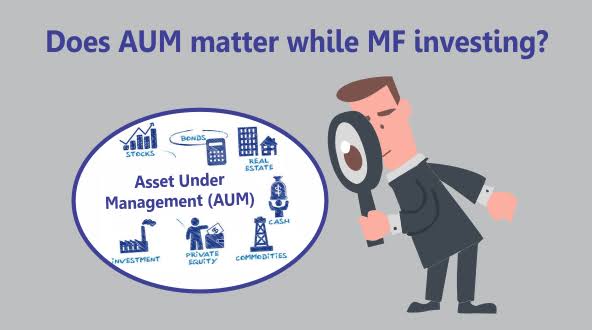
Mutual Funds Investment for NRI in India!
Updated on 21-01-2020
Can NRIs invest in mutual funds in India?
Certainly, NRIs can invest in mutual funds in India – as long as they adhere to the Foreign Exchange Management Act (FEMA). A mutual fund in your home country can give you a diversified portfolio with the desired mix of debt and equity securities. Even if you are risk-averse and want a fixed income investment avenue, the Indian debt market comes with higher interest rates. You may start with equity funds, debt funds, or hybrid funds.
How can NRIs benefit from mutual fund investments?
As one of the emerging economies in the world, India attracts thousands of foreign investors. Given below are some of the benefits NRIs enjoy by investing in the Indian mutual funds.
a. Easy to manage funds online from anywhere
With the option of investing online, it is easier to track and manage your mutual fund from the residence country too. Investors can buy, redeem, switch as well as opt for systematic transfer or withdrawals online. There is no need for issuing cheques, make DDs, fill in physical forms, or even be in the same country! You will receive regular account statements (CAS) through emails. Asset Management Companies also post portfolio disclosures online to keep investors informed.
b. Scope for more profits from rupee appreciation
If the rupee value surges against the resident country’s currency, then it means more profits for the investor. For instance, if an NRI from the UK invests 1,000 pounds in a mutual fund in India at an exchange rate of Rs 100 to 1 pound, then even with possible depreciation, the investor can reap good returns. NRIs also get the same benefits by investing in India-based mutual funds in their own country of residence.
What is the investment procedure for NRIs in India?
Asset Management Companies in India are not allowed to accept investments in foreign currencies. Hence, the first step is to open an NRO account, NRE account, or a Foreign Currency Non-Resident (FCNR) account with an Indian bank. You can invest by any of the below methods.
A. Self/Direct
One can carry out transactions, debiting or crediting through normal banking channels. Your application with the required KYC details must indicate that the investment is on a repatriable or non-repatriable basis. KYC documents include the latest photograph, attested copies of PAN card, passport, residence proof (outside India), and bank statement. The bank may require an in-person verification, which you can comply by visiting the Indian Embassy in your resident country.
B. Via Power of Attorney
Another method is to have someone else invest on your behalf. Mutual fund companies allow Power of Attorney (PoA) holders to invest on your behalf and make decisions about your investments. However, signatures of both the NRI investor and PoA should be present on the KYC documents to invest.
Mutual fund regulations for NRIs
a. KYC for NRIs
To complete the KYC process, you are required to submit a copy of your passport – relevant pages with name, date of birth, photo, and address. The current residential proof is a must, whether temporary or permanent. Some fund houses may insist on in-person verification.
b. FIRC (Remittance Certificate)
If you have made the payment via a cheque or a draft, then you must attach a Foreign Inward Remittance Certificate (FIRC) with it. In case that is not possible, then a letter from the bank would also be fine. This confirms the source of funds.
c. Redemption
The AMC will credit the corpus (investment + gains) you get after fund redemption to your account after deducting taxes. They can also write a cheque for the same. Some banks allow crediting the redemption amount directly to the NRO/NRE account. If you have opted for non-repatriable investment, then they can credit the proceeds only to an NRO account.
How are NRI mutual fund investors taxed?
NRI investors often fear that they will have to pay double tax when they invest in India. Well, that is certainly not the case if India has signed the Double Taxation Avoidance Treaty (DTAA) with the respective country. For instance, India has signed this treaty with the United States. Hence, you can claim tax relief in the US, if you have already paid taxes in India.
The gains from equity mutual funds are taxable based on the holding period. Short-term capital gains attract tax at the rate of 15%. However, Long-Term Capital Gains (LTCG), more than Rs 1 lakh, are taxable at the rate of 10.
In the case of debt funds, Short-Term Capital Gains are taxable at the rate of 30%. Holding the fund for more than three years will result in a 20% tax on the gains with indexation benefit. LTCG on non-listed funds will be taxed at the rate of 10% without indexation.
Which fund houses accept NRI investments?
a. SBI Mutual Fund
b. Birla Sun Life Mutual Fund
c. ICICI Prudential Mutual Fund
d. UTI Mutual Fund
e. Sundaram Mutual Fund
f. DHFL Pramerica Mutual Fund
g. PPFAS Mutual Fund
h. L&T Mutual Fund
Points to remember when investing in India
a. Your investment carries the right of repatriation of the amount invested and amount earned, only until you remain an NRI.
b. Residential address in the resident country is a mandatory field. Hence, you must also attach an attested proof along with the application.
c. The compliance requirement is the US and Canada is more stringent as compared to other nations. According to FATCA guidelines, all financial institutions must share the details of financial transactions involving a US person with the US Government.
d. Are you a resident of any of the 90 countries that have signed Common Reporting Standard? CRS is a global reporting system to combat tax evasion.
In short, NRIs can choose to invest in his/her home country. The process may have some initial hassles. However, in the long run, the return on investment would be worth it. Currently, only eight fund houses accept mutual fund investment from NRIs residing in the US and Canada. So, there is certainly no reason for you to be left out of investing in one of the fastest-growing economies.
You can use GIIS Financial tools or Our Android App for Investment, tracking and Asset allocation planning.
*Mutual Fund Investments are subject to market risk, read all scheme related documents carefully.
Share On















0
Comment